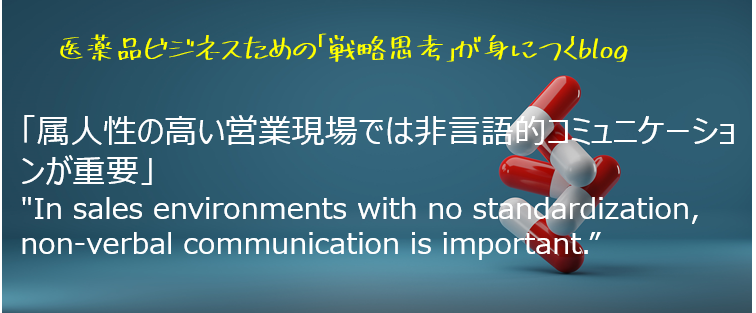デジタル化推進とともに営業拠点を廃止する製薬企業が多い中で、日本ベーリンガーインゲルハイム(NBI)は社員の対面でのコミュニケーションを重視し、全国の事業所及び営業所を再編すると発表しました。
元来、営業とは個人の活動に帰属する属人的なものです。
データを基にした客観的なアプローチや、分析による定量的な顧客像の認識から論理的構造で説明できる『形式知』とは異なり、個人の判断を基にした主観的アプローチから、観察により定性的に顧客を認識し、無意識のうちに顧客に合せる、経験や勘といった言語化が難しい主観的な知識である『暗黙知』です。
テキストなどのオンラインによるコミュニケーションより、オフラインによる非言語的コミュニケーションが適しています。
一気に進んだ営業DXによって、営業をデジタルに置換出来ると考える本社部門がありますが、労働集約型産業である医療機関を対象とする営業においても、今後は大きな揺れ戻しが起きるのではないでしょうか?
“In sales environments with no standardization, non-verbal communication is important.”
While many pharmaceutical companies are abolishing sales bases as they promote digitization, Nippon Boehringer Ingelheim (NBI) announced a restructuring of its nationwide offices and sales offices, emphasizing face-to-face communication among employees.
Sales activities are inherently subjective and based on individual judgment, involving tacit knowledge that is difficult to verbalize, such as experience and intuition. This is in contrast to formal knowledge that can be explained through logical structures, based on objective approaches and quantitative customer profiles derived from data analysis.
In the sales department, non-verbal communication through offline dialogue is more suitable for sales than online communication such as text-based communication. Some companies believe that by accelerating the introduction of sales DX, it will be possible to completely digitize sales, but sales activities targeting labor-intensive medical institutions may see a major setback in the future.

